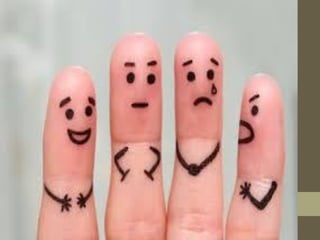This chapter provides an overview of human behavior in organizations and organizational behavior. It defines organizational behavior as the study of how people behave in organizational settings, including their interactions with each other and the organization. The goals of organizational behavior are to explain, understand, and predict human behavior in order to control or influence it. Key topics covered include the benefits of studying organizational behavior, such as developing people skills and enhancing organizational effectiveness. A brief history is also given, from early scientific management approaches to more modern theories incorporating aspects of psychology.


































